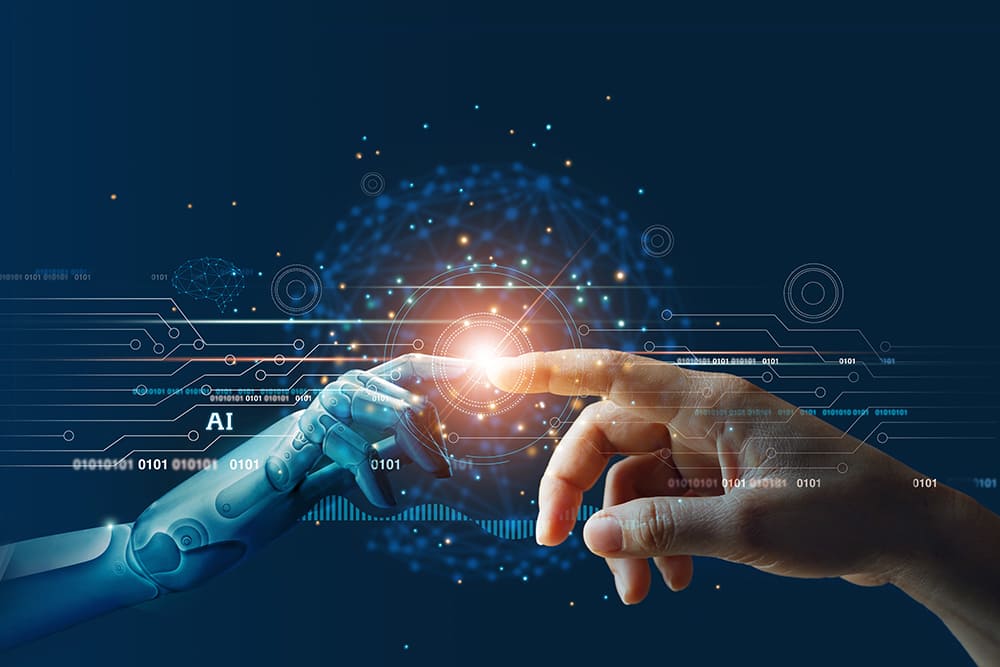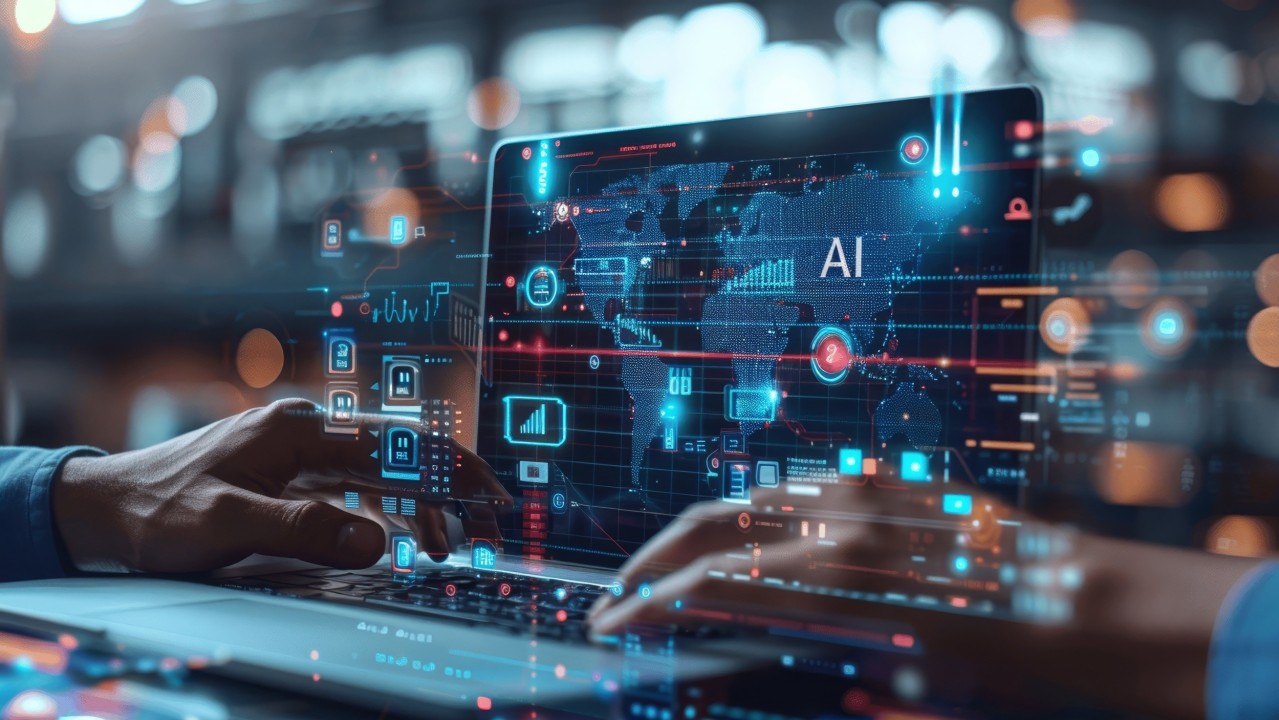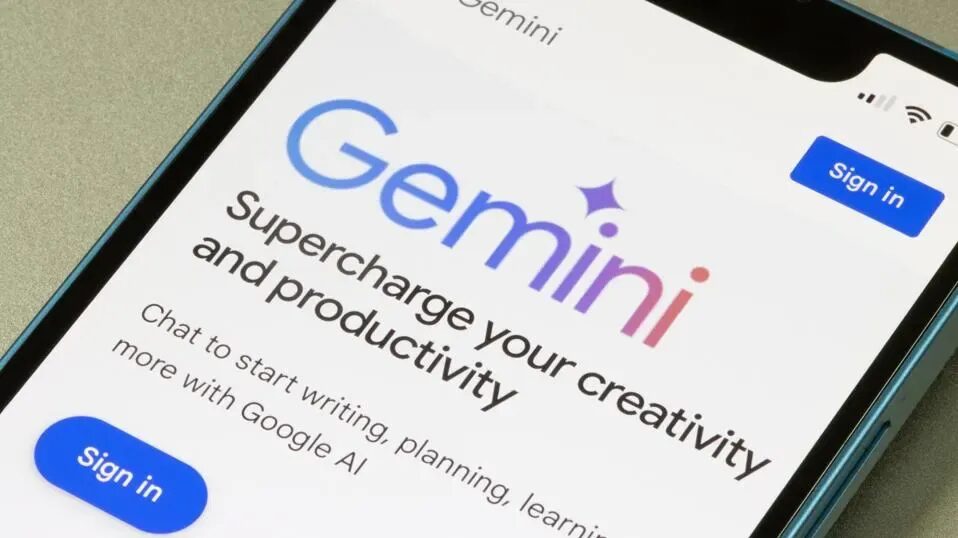Future Developments of Artificial Intelligence
15 December 2021
AI may be the most transformative technology humans have ever developed. How will it continue to evolve and develop in the future? Here are some predictions.
As a futurist who has written several books on artificial intelligence, I watch the AI space carefully, and I believe that in the future it will continue to be the most transformative technology humans have ever developed.
According to Google CEO Sundar Pichai, the impact of AI on the development of our species will be even greater than that of fire or electricity.
So where is artificial intelligence headed in the future? Here are 8 of the biggest trends to watch:

1. AI Workforce Augmentation
In the future, we’ll see even more of our jobs being outsourced to AI. Artificial intelligence can now do amazing things like read, write, speak, and smell that previously only humans could do. That frees up humans to do the things we do best on the jobs, like being creative and practicing emotional intelligence.
We will be able to give some of the mundane, more repetitive work to AIs, and this will impact our workforce across every sector and every job in 2022 and beyond.
2. Better Language Modeling Capability
Language modeling is the process that allows machines to understand and communicate with us in ways we understand. We can even use it to take natural human language and turn it into computer code that can run programs and applications.
Recently, we have seen the release of GPT-3 by OpenAI, the most advanced and largest language model ever created, consisting of around 175 billion parameters for processing language.
OpenAI is already working on its successor, GPT-4, which will be even more powerful. Although the details haven't been confirmed, some people believe it will contain up to 100 trillion parameters, making it 500 times larger than GPT-3. In theory, that would take it one giant step closer to being able to create language and hold conversations that are indistinguishable from those of a human. This model will also become much better at creating computer code.
3. Cybersecurity
This year, the World Economic Forum noted that cybercrime may actually pose a more significant risk to society than terrorism. As machines take over more of our lives, hacking and cybercrime inevitably become bigger and more dangerous problems.
The good news is that artificial intelligence can be a helpful weapon against cybercrime, because AI is quite good at analyzing network traffic and recognizing patterns that might suggest nefarious intentions.
4. The Metaverse
The word “metaverse” describes a unified, persistent, digital environment where users can work and play together. It's a virtual world like the internet, but with the emphasis on enabling immersive experiences that are created or enabled by users. Companies like Meta, Microsoft, and Epic Games are helping to build the metaverse, and AI will be a key component of creating online immersive environments where humans can feel at home and explore their creative impulses.
5. Low-Code or No-Code AI
In the not-so-distant past, you needed specialized coding skills to create even simple websites. But these days, we have drag-and-drop graphical interfaces that make it easy to create websites and post new content with just a few clicks.
In the future, the same thing will happen with artificial intelligence and machine learning. We will have simple tools we can use to build our AI so we are less reliant on coding skills and can still use AI to develop more and more applications. These low-code or no-code tools will truly democratize artificial intelligence technology.
6. Data-Centric AI
Traditionally, artificial intelligence has relied on big data. We needed huge volumes of data to train the AI's algorithms and neural networks, so they were software-centric. The latest trend is becoming more focused on the data, because many applications beyond the world of big tech have access to billions of unique, structured data sets.
For those companies to use AI, they need to rely on high-quality data, and they will need domain expertise from people to help label the data. With that data, they can use AI and machine learning to develop better technologies.
To learn more about the data-centric trend in AI, listen to my recent conversation with Andrew Ing, co-founder of Google Brain and former chief scientist at Baidu.
7. Autonomous Cars
Tesla says its cars will demonstrate full self-driving capability by 2022. Its competitors – which include Google, Apple, General Motors, and Ford – are all expected to announce major leaps forward in the autonomous car space in the next year.
In the year 2022, we will also likely see the first autonomous ship crossing the Atlantic from the U.K. to the U.S.
8. Creative AI
Creativity is often seen as strictly a human skill. But now, artificial intelligence can pull off creative tasks, including designing logos, songwriting, creating infographics, and writing blog posts. The creative side of AI will simply explode over the coming years as we see new capabilities emerging.
For more content on future tech and business trends, check out my books, Business Trends in Practice: The 25+ Trends That are Redefining Organizations and Tech Trends In Practice: The 25 Technologies That Are Driving The 4th Industrial Revolution.
Related Articles
4 Game-Changing Quantum Computer Types That Could Transform Everything
By now, “smart” versions exist of just about every home appliance, gadget and gizmos we can think of. However, manufacturers continue[...]
AI’s Competitive Edge: Turning Data Challenges Into Business Success
By now, “smart” versions exist of just about every home appliance, gadget and gizmos we can think of. However, manufacturers continue[...]
The Everything AI: How Google’s Super Assistant Could Change Life As We Know It
By now, “smart” versions exist of just about every home appliance, gadget and gizmos we can think of. However, manufacturers continue[...]
5 Amazing Things You Can Do With ChatGPT’s New Operator Mode?
By now, “smart” versions exist of just about every home appliance, gadget and gizmos we can think of. However, manufacturers continue[...]
5 AI Mistakes That Could Kill Your Business
By now, “smart” versions exist of just about every home appliance, gadget and gizmos we can think of. However, manufacturers continue[...]
AI Agents Are Coming For Your Industry: Here’s Who’s First In Line
By now, “smart” versions exist of just about every home appliance, gadget and gizmos we can think of. However, manufacturers continue[...]
Sign up to Stay in Touch!
Bernard Marr is a world-renowned futurist, influencer and thought leader in the fields of business and technology, with a passion for using technology for the good of humanity.
He is a best-selling author of over 20 books, writes a regular column for Forbes and advises and coaches many of the world’s best-known organisations.
He has a combined following of 4 million people across his social media channels and newsletters and was ranked by LinkedIn as one of the top 5 business influencers in the world.
Bernard’s latest book is ‘Generative AI in Practice’.










Social Media